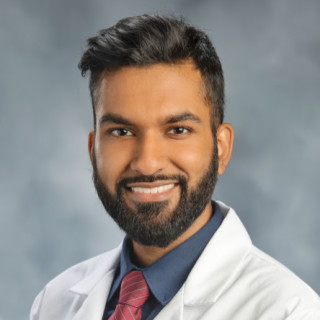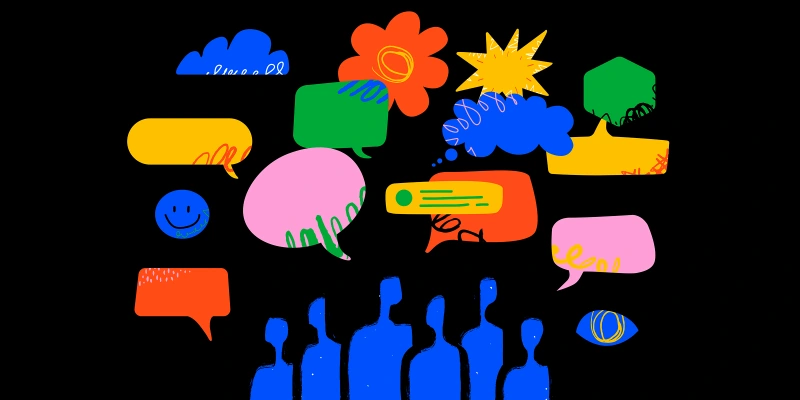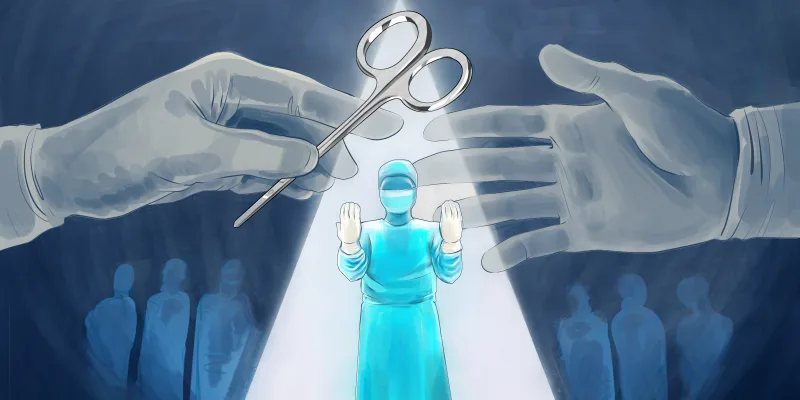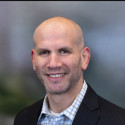It was a typical day in our downtown Detroit strabismus clinic. I busied myself with examining my pediatric patient, checking for any misalignment of the eyes, when the patient’s mother, who couldn’t have been much older than me, timidly said: “I heard that only white folks can get the coronavirus because they don’t have melanin.” It took me a second to process the statement, which had clearly been meant as a question, out of left field.
My mind began to race with speculation about how this woman had come to such a conclusion — and what other dangerous misinformation might be spreading in the Detroit Black community. My concern was heightened when the patient’s father mentioned what he was doing to prepare for the peak of the virus: buying up as many guns as he could find. I stopped what I was doing to speak to them without distraction, despite the fact that the clinic was running behind schedule.
I have been working with the Detroit community for a few years and I am aware of the cultural complexities associated with caring for Black and ethnic minority patient populations. In a city that is recently infamous for financial ruin after the fall of the local automotive industry, the people of Detroit have shown resilience in the midst of many hardships. The patient families that I care for face many economic challenges and, with the onset of lockdowns and subsequent layoffs, these issues were only compounded.
The metro Detroit airport continued accepting international flights, including some from China, longer than other U.S. airports. Some have hypothesized that this is why the novel coronavirus began to pop up in Detroit earlier than in other parts of the state. By the time the virus began to rip through southeast Michigan, the number of cases in Detroit skyrocketed, making it one of the national coronavirus hot spots, with fewer cases than New York City but more cases than Seattle. As the death toll climbed, a grim truth became more apparent: although the Black community did not make up a majority of the population, Blacks were bearing the lion's share of the death burden.
There isn’t a consensus yet on the exact cause of the disparity in the death toll, but the Black community is not unfamiliar with receiving the short end of the health care stick. Mistrust of the health care system has historic roots (see the Tuskegee experiments), but the reality of the problem is borne out in the disproportionate disease burden (see, for example, the rates of diabetes and hypertension), lack of access to health care and nutrition (see the correlation between distribution of Black populations and food deserts), and the recent failure of authority figures to demonstrate a commitment to addressing these issues (see the Flint water crisis). Unfortunately, it is not surprising that our Black patients are experiencing the brunt of this pandemic’s morbidity and mortality.
In addition to the aforementioned disadvantages, misinformation about the virus is alarmingly widespread. Confronted with my patient’s family’s questions, I started by explaining the basics of what was publicly known about the coronavirus, which was not much at the time. Then, I asked them if they had more questions. I was eager to dispel as many myths as I could in our short visit time. I asked where they had heard that they were immune because they are Black. Unsurprisingly, social media and messaging apps, which had allowed for the rapid spread of misinformation affecting disadvantaged populations, were to blame. The patient’s mother mentioned multiple Facebook posts peddling conspiracy theories about the origins of the virus, and who was most susceptible. She opened her phone to show me an example and it did not take long for her to scroll to a meme-style post stating the virus was a hoax, caused by 5G wireless networking, and designed in a laboratory as a biological weapon.
The myth referenced by my patient’s mother is one of the most damaging myths I’ve come across: that melanin somehow has a protective effect against the virus. Of course, as the death toll of Black Detroiters has reached record highs, this theory has been proven glaringly false. But early in the pandemic, the myth gave many in the Black community a false sense of security and contributed, undoubtedly, to the success of the virus’ spread. It’s known, of course, that melanin, the natural pigment occurring in skin, helps to mitigate ultraviolet damage, which reduces the risk of developing skin cancer in some ethnic populations. But this fact has nothing to do with the coronavirus — that is: a reduced risk of skin cancer does not signify a reduced risk of infection by the virus that causes COVID-19.
Alas, the origin of the melanin myth is yet unknown and will likely remain so; perhaps the better questions are: Who is responsible for misinformation that spreads online and on social media? Are hosting platforms tasked with the impossible job of monitoring each and every post? Ultimately, I think the solution lies in educating the public. And, until basic health literacy is accessible for every American, every conversation health care providers have with families in the exam room is a step in the right direction.
Dr. Saaquib Bakhsh is dedicated to ending the healthcare disparities faced by our most vulnerable populations. His focus includes the interplay between race, socioeconomics, culture, environment, and public health. He was born and raised in Chicago where he earned bachelor's degrees in statistics and environmental sciences from Northwestern University. He completed medical school at Rush University and is currently in ophthalmology residency in Michigan. He is a 2020–2021 Doximity Op-Med Fellow.
Illustration Collage by Jennifer Bogartz / Shutterstock
Click here to see more perspectives on COVID-19 from the Doximity network.
Click here for up-to-date news about COVID-19 on Doximity.







